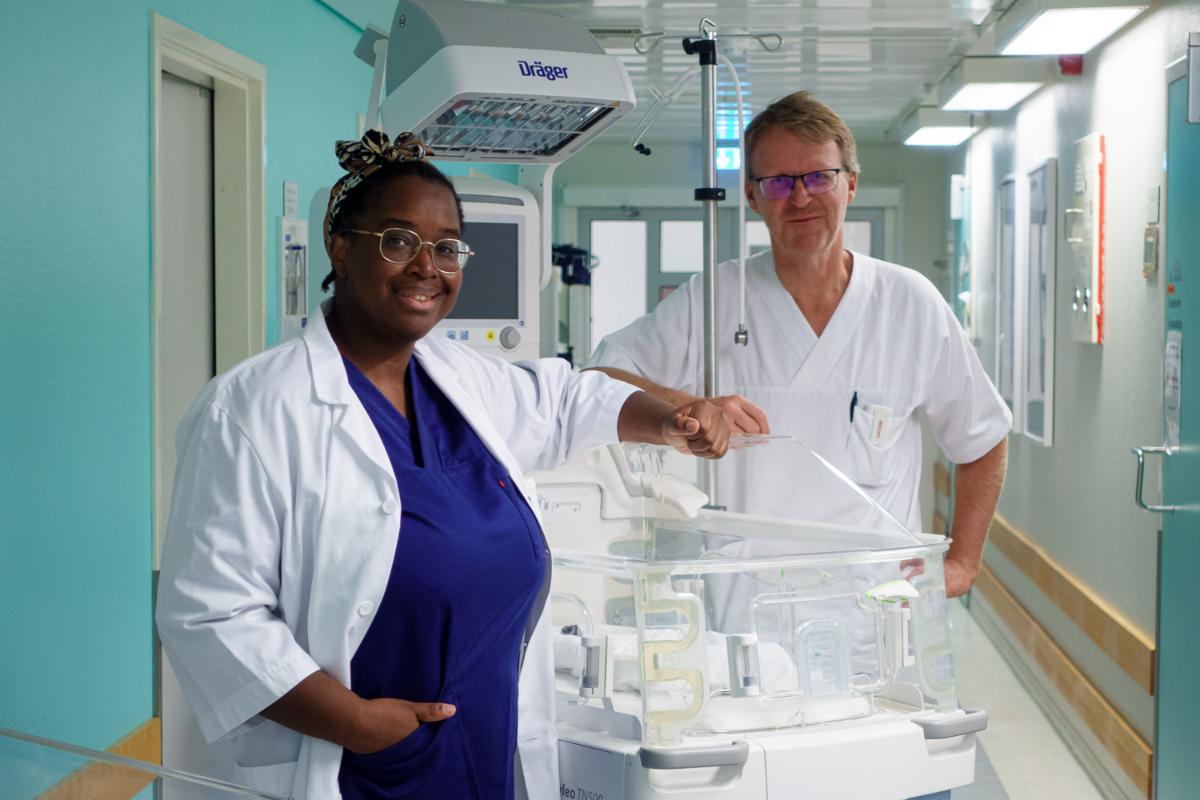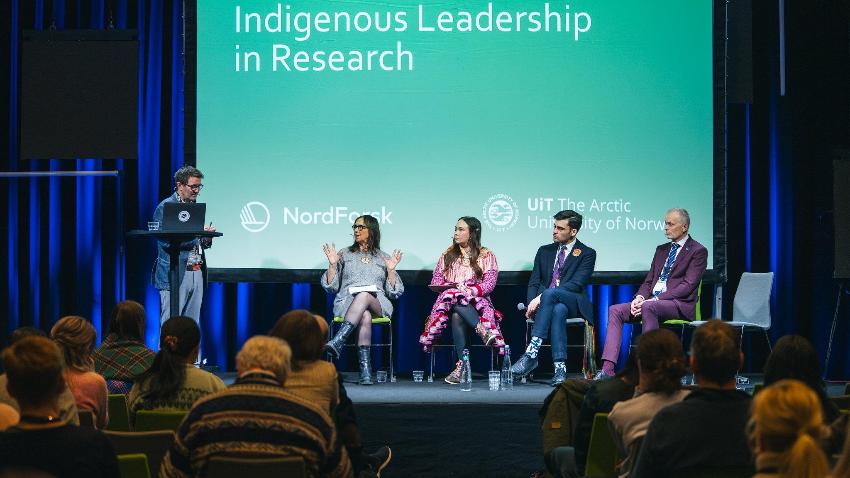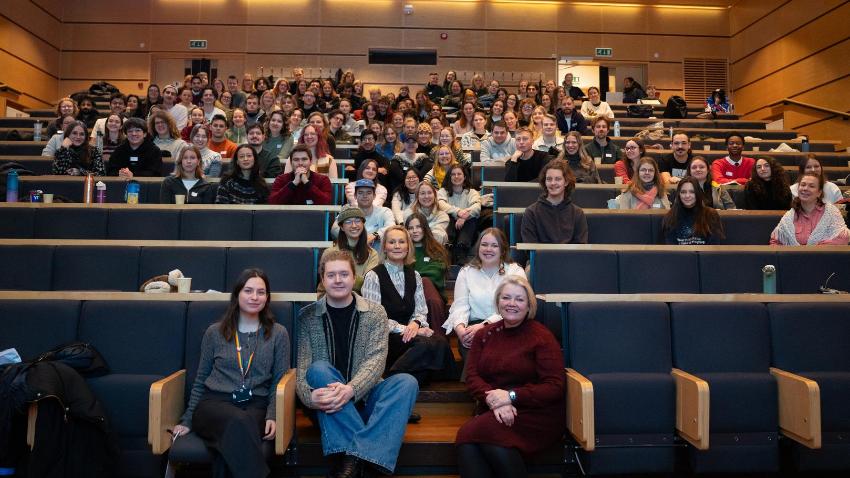Streptococcal vaccines are safe and effective
Nearly 1.5 million newborns are affected by serious infections worldwide each year. New vaccines under development offer hope for less illness, fewer deaths, and reduced antibiotic use, according to a doctoral study from UiT.

Group B streptococci (GBS) are a type of bacteria that can cause severe blood stream infection (sepsis) in newborns. Globally, about 400,000 newborn children develop a serious GBS infection each year, and around one in five of these will die from such an infection.
Those who survive are at greater risk of developing neurological disorders, such as epilepsy, cerebral palsy, and neurodevelopmental delay. The problem is most significant in Africa, but many are also affected in countries in the northern hemisphere.
– Today, there are two vaccines under development against blood stream infection with GBS. Our study provides strong indications that both of these vaccines will be both safe and effective weapons in the fight against blood stream infection in newborns, Aline Bjerkhaug, a trained doctor and doctoral fellow at UiT says.
Together with researchers at other universities and at UiT and CANS – Centre for new antibacterial strategies, they have conducted a systematic literature review and have gone through 20 high-quality studies to assess the mechanisms of action and the biological effects of the two vaccines.
Prefer vaccines over antibiotics
The results give good reason for optimism that we can reduce both the incidence of blood stream infection and its long-term effects in newborn children.
– Today, especially in affluent countries, we give antibiotics to the mother before birth as a precaution, to prevent the child from contracting this bacterium during birth.
– When possible, we should rather give the vaccine to the mother, both to prevent these streptococci from developing antibiotic resistance, and to prevent the antibiotics from disrupting the development of the child's gut flora (gut microbiome). The gut microbiome is important for the development of a normal immune system and should be disturbed as little as possible, Bjerkhaug concludes.
The two vaccines under development could be on the market around the year 2030, perhaps earlier.
The study on GBS vaccines is one of three studies in the doctoral work of Aline Bjerkhaug at UiT The Arctic University of Norway. Bjerkhaug now works as a researcher at the Karolinska Institute in Stockholm.
Scientific reference
The immunogenicity and safety of Group B Streptococcal maternal vaccine: A systematic review. Vaccine, 2024 Jan 12; 42(2): 84-98
-
Public Health - master
Varighet: 2 År -
Medisin profesjonsstudium
Varighet: 6 År -
Nordisk - årsstudium
Varighet: 1 År -
Pedagogikk - bachelor
Varighet: 3 År -
Bioingeniørfag - bachelor
Varighet: 3 År -
Informatikk, sivilingeniør - master
Varighet: 5 År -
Likestilling og kjønn - årsstudium
Varighet: 1 År -
Biomedisin - bachelor
Varighet: 3 År -
Psykologi - bachelor
Varighet: 3 År -
Ergoterapi - bachelor
Varighet: 3 År -
Fysioterapi - bachelor
Varighet: 3 År -
Radiografi - bachelor
Varighet: 3 År -
Samfunnssikkerhet - master
Varighet: 2 År -
Farmasi - bachelor
Varighet: 3 År -
Farmasi - master
Varighet: 2 År -
Psykologi - årsstudium
Varighet: 1 År -
Odontologi - master
Varighet: 5 År -
Tannpleie - bachelor
Varighet: 3 År -
Sykepleie - master
Varighet: 2 År -
Barnevern - bachelor
Varighet: 3 År -
Sosialt arbeid - bachelor
Varighet: 3 År -
Idrettsvitenskap - master
Varighet: 2 År -
Sosialt arbeid - master
Varighet: 2 År -
Vernepleie - bachelor
Varighet: 3 År -
Barnevern - bachelor
Varighet: 3 År -
Vernepleie - bachelor
Varighet: 4 År -
Ernæring - bachelor
Varighet: 3 År -
Videreutdanning i krisehåndtering og traumebehandling
Varighet: 1 År -
Videreutdanning om vold i nære relasjoner
Varighet: 1 År -
Videreutdanning i rus og psykisk helse
Varighet: 1 År -
Paramedisin - bachelor
Varighet: 3 År -
Nordisk språk og litteratur - bachelor
Varighet: 3 År -
Fysioterapi - master
Varighet: 3 År -
Aldring og geriatrisk helsearbeid - master
Varighet: 3 År -
Helsefaglig utviklingsarbeid - master
Varighet: 3 År -
Psykisk helsearbeid - master
Varighet: 3 År -
Helsesykepleie - master
Varighet: 3 År -
Jordmorfag - master
Varighet: 2 År -
Klinisk ernæring - master
Varighet: 2 År -
Velferdsendring - erfaringsbasert master
Varighet: 4 År -
Ph.d.-utdanning i helsevitenskap
Varighet: 3 År -
PhD Programme in Health Sciences
Varighet: 3 År -
Sykepleie - bachelor
Varighet: 3 År -
Psykologi profesjonsstudium
Varighet: 6 År -
Sykepleie - bachelor
Varighet: 4 År -
Samisk sykepleie - bachelor
Varighet: 4 År -
Trening, prestasjon og helse - bachelor
Varighet: 3 År -
Trening, prestasjon og helse, personlig trener - årsstudium
Varighet: 1 År -
Medisin profesjonsstudium - forskerlinje
Varighet: 7 År -
Psychology - master
Varighet: 2 År



